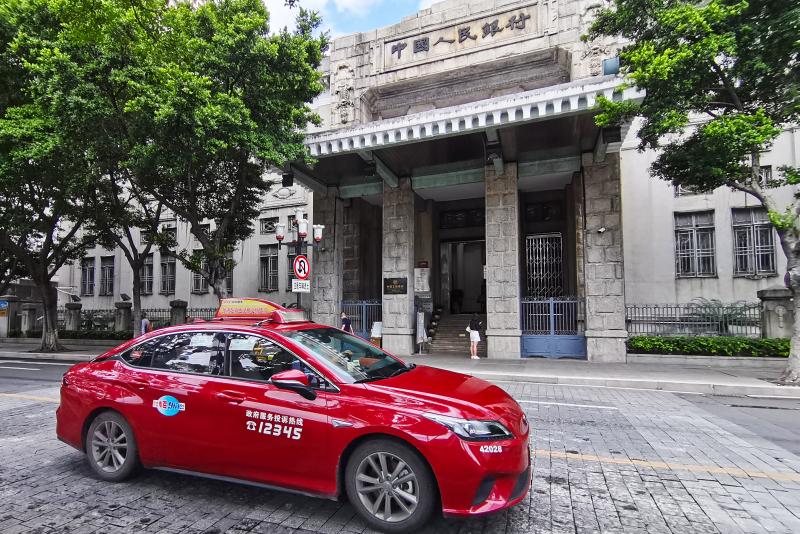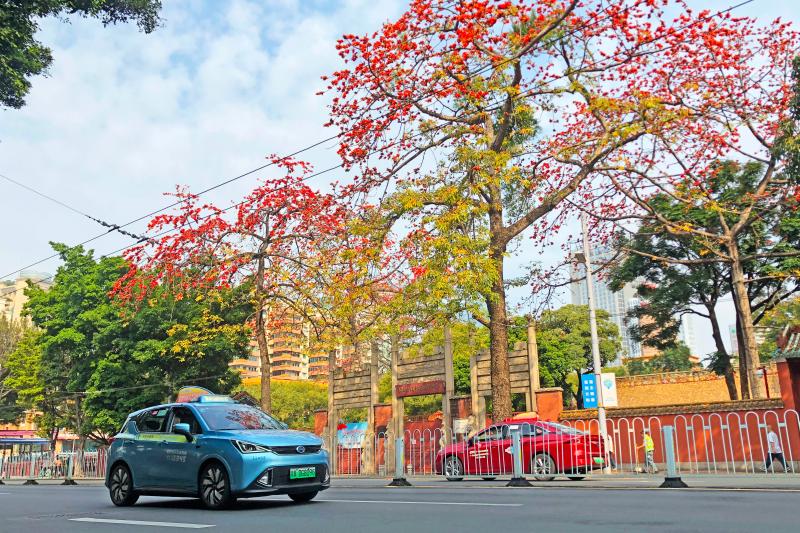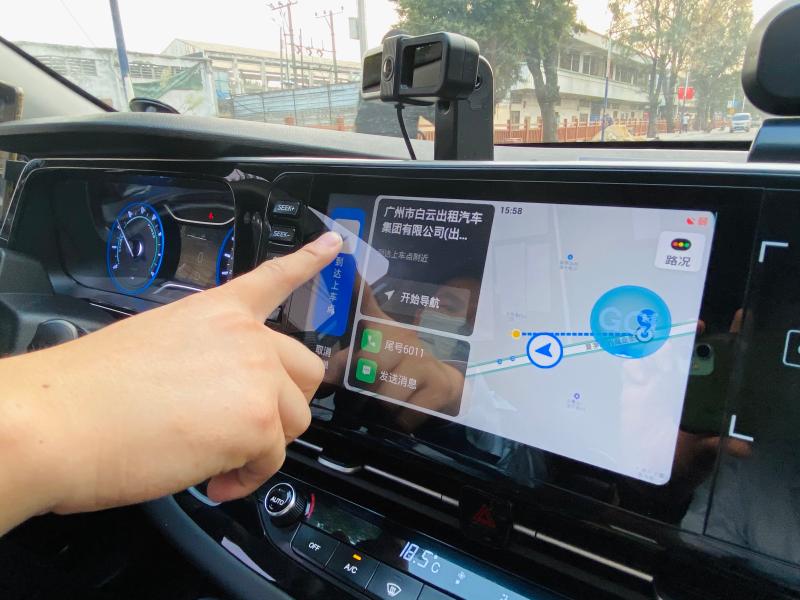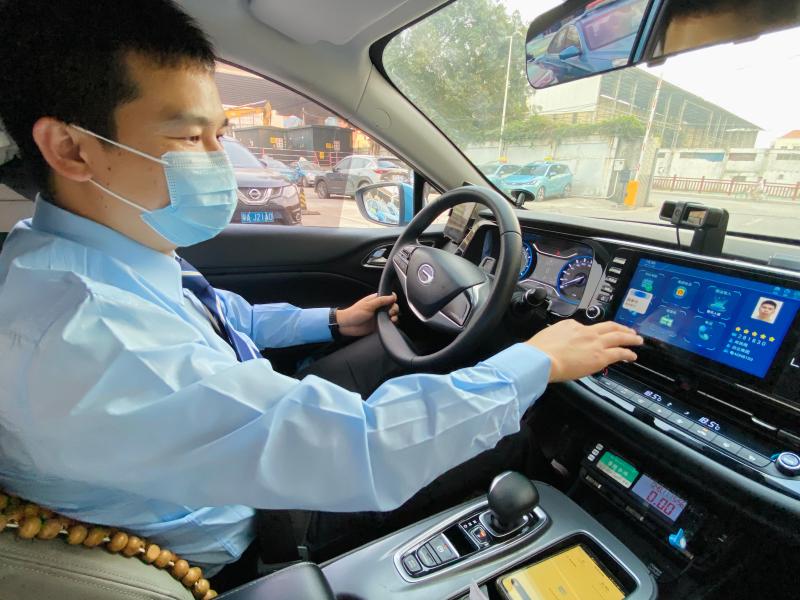Wen/Yangcheng Evening News All Media Reporter, Yan Yiwen, Wang Man, Intern, Li Yushan
In recent years, Guangzhou has significantly improved the quality of industry services by adjusting the taxi fare structure, actively promoting the revision and improvement of industry management regulations, promoting industry informatization construction, and strengthening industry supervision. In 2020, the monthly average of industry service quality complaints dropped from the previous peak of more than 2,000 to about 500.
Recently, the Yangcheng Evening News all media reporters interviewed the Guangzhou Municipal Passenger Transport Management Office (hereinafter referred to as the "Municipal Passenger Management Office") and cruise taxi companies, detailed the key moves to improve the service quality of cruise taxis in Guangzhou, and deeply excavated the forces behind the image improvement of the taxi industry.


The service quality of Guangzhou cruise taxis has been improved, and the interviewees provided pictures
Tariff structure adjustment to increase driver income
In 2014, problems such as a significant decrease in driver income in the rental industry, the suspension of vehicle production, and the unreasonable freight structure gradually became prominent, followed by a decline in the service quality of the cruise taxi industry. "In the past, a driver’s monthly revenue was about 7,000-8,000 yuan, but in 2015, the monthly revenue was only about 4,000 yuan, and the income was reduced by half." Lin Le, head of the taxi management section of the Guangzhou Passenger Transport Management Office, told the Yangcheng Evening News in an interview with all media reporters that improving the driver’s operating environment and increasing driver income can improve the service quality of the industry.
The unreasonable fare structure is one of the important reasons for the decline in the service quality of the Guangzhou taxi industry. Cruise taxi operating prices include starting price, freight per kilometer, congestion waiting time fee, night service fee, etc. Before the adjustment of the fare structure, the starting price of Guangzhou taxis was 10 yuan, and there was no night service fee. The long-distance return mileage was 35 kilometers, and the waiting time fee was less. "The waiting time fee for 1 hour is only 26 yuan, so drivers are unwilling to go to congested and remote places, and they are unwilling to provide service at night." Lin Le analysis.
In 2018, Guangzhou proposed a taxi price adjustment plan, which was fully implemented in June of the same year. The starting price was adjusted from 10 yuan to 12 yuan; the renewal price was 2.6 yuan per kilometer for the part exceeding 3 kilometers; the congestion waiting time fee was increased to 44 yuan per hour; night service fees were added, and 30% of the renewal price was charged; the return mileage was 50% of the renewal price from the original 35 kilometers, 20% of the renewal price from 15 kilometers to 25 kilometers, and 50% of the renewal price for more than 25 kilometers.
Xie Weicai, manager of the market operation department of Guangzhou Baiyun Taxi Group Co., Ltd., experienced the industry changes before and after the price adjustment. He told reporters: "After the adjustment of the freight structure, the income level of taxi drivers has improved, and the overall service quality and service level of taxis have been significantly improved, achieving the expected effect." The reporter learned that after the adjustment of the freight structure, the monthly revenue of bicycles (double shifts) can increase by about 3,500 yuan, and the monthly income of a cruise taxi driver can increase by about 1,500 yuan.
The statistics of the Municipal Passenger Management Office show that within one year after the adjustment of the freight structure (June 2018-May 2019), the monthly average number of complaints about the service quality of the industry (1462 cases) decreased by 19% compared with the previous year (the average number of complaints in the previous year was about 1800 cases), the service quality of the industry gradually improved, and the total number of complaints about the service quality of the industry decreased month by month.


New in-vehicle intelligent end points regulate driver behavior
The new management regulations are implemented to clarify corporate management responsibilities
The improvement of the service quality of the Guangzhou taxi industry is inseparable from the standardization of relevant laws and regulations. In August 2019, the "Regulations on the Administration of Passenger Transport of Cruise Taxi Vehicles in Guangzhou" (hereinafter referred to as the "Regulations") were promulgated and officially implemented on November 1 of the same year. "The original" Regulations on the Administration of Passenger Transport of Taxi Vehicles in Guangzhou "came into effect in 2009 and are no longer suitable for the development and management needs of the industry. The new regulations combine the actual development of society and the industry to further strengthen the management responsibility of enterprises and require enterprises to bear the main responsibility." In Lin Le’s opinion, the amendments to the regulations have clarified the driver’s behavioral norms and obligations, which has effectively stimulated the vitality of market operation.
The reporter combed through the "Regulations" and found that the content of the regulations has further strengthened the implementation of the main responsibility of enterprise management. Among them, it is clear that if a driver violates laws such as refusing to load, bargaining, etc., while punishing the driver, the responsibility for poor management of the enterprise will be investigated. For example, if a vehicle belonging to an enterprise violates laws such as refusing to load, bargaining, detouring, and illegal operation by unqualified personnel, according to the standard of "more than five times in two consecutive months and exceeding 6% of the total number of cruising taxis of the enterprise", the enterprise will be fined 30,000 yuan and less than 100,000 yuan.
In addition, the new regulations strengthen the accountability of drivers for violations of the law. It is clear that for violations such as refusing to load, detouring, and chasing passengers halfway, the fine will be increased by 1,000 yuan; for those who refuse to accept inspection violations, the "warning treatment" will be changed to "warning and fine"; drivers who commit multiple violations will have their professional qualifications revoked.
After the promulgation of the "Regulations", the service quality of cruise taxis in Guangzhou has been further improved. According to the statistics of the Municipal Passenger Management Office, the overall complaint volume in 2019 remained at around 1,000-1,100 per month. From August 2019 to January 2020, the average monthly service quality complaints of the industry have dropped to 797, returning to the better service level of the industry during the Asian Games held in Guangzhou in 2010.
"It should be noted that the complaint structure has changed since 2020. In 2020, complaints about refusal to load dropped by 77% year-on-year, and complaints about bargaining dropped by 82% year-on-year." Lin Le said that the proportion of complaints about driver refusal and bargaining has dropped significantly, and complaints are mainly concentrated on service attitudes caused by poor communication between drivers and passengers.
Improve vehicle hardware and strengthen information supervision
"The supervision of violations by the competent authorities has been continuously strengthened; the management system of various taxi enterprises (reward and punishment mechanism), taxi equipment, video end points have been continuously improved; changes in the market environment, taxi drivers have gradually realized the importance of quality service, etc. These are all important factors for the improvement of service quality in Guangzhou taxi industry in the past five years." Xie Weicai said of the reasons for the improvement of the service image of Guangzhou taxi industry.
Driving without professional qualifications, carrying passengers without meters, smoking while driving, chatting on WeChat and watching videos on mobile phones… In recent years, Guangzhou has promoted the application of new on-board intelligent end points, and fully implemented audio & video surveillance. Taxi drivers’ uncivilized and irregular driving behavior is invisible in the face of new intelligent end points.
It is understood that the new vehicle intelligent end point is equipped with a high definition display screen, four high definition cameras and other equipment, which can perform human behavior analysis and AI visual recognition analysis on the driver’s behavior, and send relevant pictures and videos to the "car captain" APP, enterprise managers can correct the driver’s illegal behavior in time according to the information obtained.
The intelligent end point can also identify the driver’s uncivilized and irregular behavior. If the driver is tired driving, leaves the steering wheel with both hands, or does not look straight ahead with both eyes for a long time, the car will remind "for your driving safety, please do not drive tired." If the driver smokes in the car, looks at the mobile phone, does not wear a seat belt or deliberately blocks the camera, screenshots will be transmitted to the background in real time, and enterprise managers can see the driver’s detailed personal information and violations on the background APP. "The use of new vehicle intelligent end points, the improvement of vehicle imaging equipment, and the popularization of information monitoring systems have comprehensively enhanced the service image of the industry and enhanced the public’s riding experience," Xie Weicai said.
Since 2015, the Guangzhou taxi industry has begun to promote the application of technical means. At present, about 20,000 cruise cars in the urban area have all achieved full coverage of the new vehicle intelligent end point. Through the use of information technology means, the whole process of supervision of the service quality of operating vehicles and drivers has been realized.
In terms of improving vehicle hardware, Guangzhou uses 100% new energy vehicles in the renewal or addition of cruise cars through policies such as capacity index incentives and vehicle purchase subsidies. In November 2020, Dongfeng Qichen Company donated 4,000 sets of fully enclosed floor mats in the car to the Guangzhou Taxi Association to solve the current problems of worn floor mats and curling in some cruise taxis, and greatly improve the hygiene in the car.
"Enterprises can make more efforts to improve their service image. For example, by strengthening the service quality assessment of drivers, through the assessment of driver service quality, the better the service, the higher the driver’s income, and the goal of rewarding diligence and excellence." Xie Weicai said that in the future, Guangzhou Baiyun Taxi Group Co., Ltd. will further strengthen the daily service supervision of taxis. Through information management methods such as taxi video monitoring and intelligent end points, it will strengthen the supervision of taxi drivers’ clothing, hygiene and disinfection, and standardize service. Improve taxi service quality.
Precision strikes are not soft, and high-pressure law enforcement has achieved remarkable results
Guangzhou taxi market operation order has improved significantly, bargaining, refusal complaint rate has dropped significantly, but also thanks to the transport sector to actively explore and innovate law enforcement methods.
In April 2016, the municipal traffic law enforcement department set up an electronic law enforcement room to carry out pilot work in the area around the Tianhe passenger station. By setting up high definition cameras on the strictly regulated road section, taxis are dynamically monitored 24 hours a day. As long as there are violations such as bargaining refusal and illegal waiting for passengers to pick up passengers, they will be "recorded". After the implementation of electronic law enforcement for one month, the number of illegal taxis caught in the area decreased by 70% month-on-month.
"Taxi violations have the characteristics of instantaneous and occasional. During the investigation, it is difficult for both drivers and passengers to obtain evidence, and the efficiency of human road inspection alone is low." Law enforcement officials said that the addition of scientific and technological means has greatly improved the efficiency of law enforcement and has a greater deterrent effect on illegal drivers. In November 2018, the municipal traffic law enforcement department further optimized big data law enforcement. Taking Baiyun Airport as a pilot, it integrated on-board video, satellite positioning, electronic monitoring, bayonet data and other technical resources to form a new model of "big data analytics + off-site law enforcement", so that violations can be followed. Since the Spring Festival of 2019, this model has been promoted and applied in areas such as East Railway Station and Tianhe Passenger Station.
Off-site law enforcement is not affected by factors such as location, time, and weather. Even if law enforcement officers are not on site when the violation occurs, they can still screen and collect evidence through big data afterwards. The supervision scope is wide, the seizure efficiency is high, and it also solves the problem of complaints "difficult to collect evidence" very well.
According to statistics, in 2020, the municipal traffic law enforcement department investigated and dealt with a total of 4,553 cases of various types of taxi violations, of which 3,516 were filed by off-site law enforcement, accounting for 77.2% of the total number of cases filed in the year. In addition, from January to November 2020, 4,967 complaints about the quality of service in the industry were accepted, a decrease of 57.43% year-on-year. "As long as the driver has violated the regulations, the basic investigation is accurate, and the number of drivers who take chances with violations has decreased significantly," the law enforcement official said.
In addition to strengthening pavement inspections and increasing investment in science and technology, the municipal traffic law enforcement department has also adopted measures such as safety production law enforcement, administrative interviews, and industry notifications. Since the implementation of the Regulations, the municipal traffic law enforcement department has conducted 25 law enforcement interviews with taxi enterprises and filed 414 cases. Since 2019, a total of 56 safety production law enforcement inspections have been carried out on taxi enterprises, and 39 cases have been filed according to the "Production Safety Law of the People’s Republic of China".